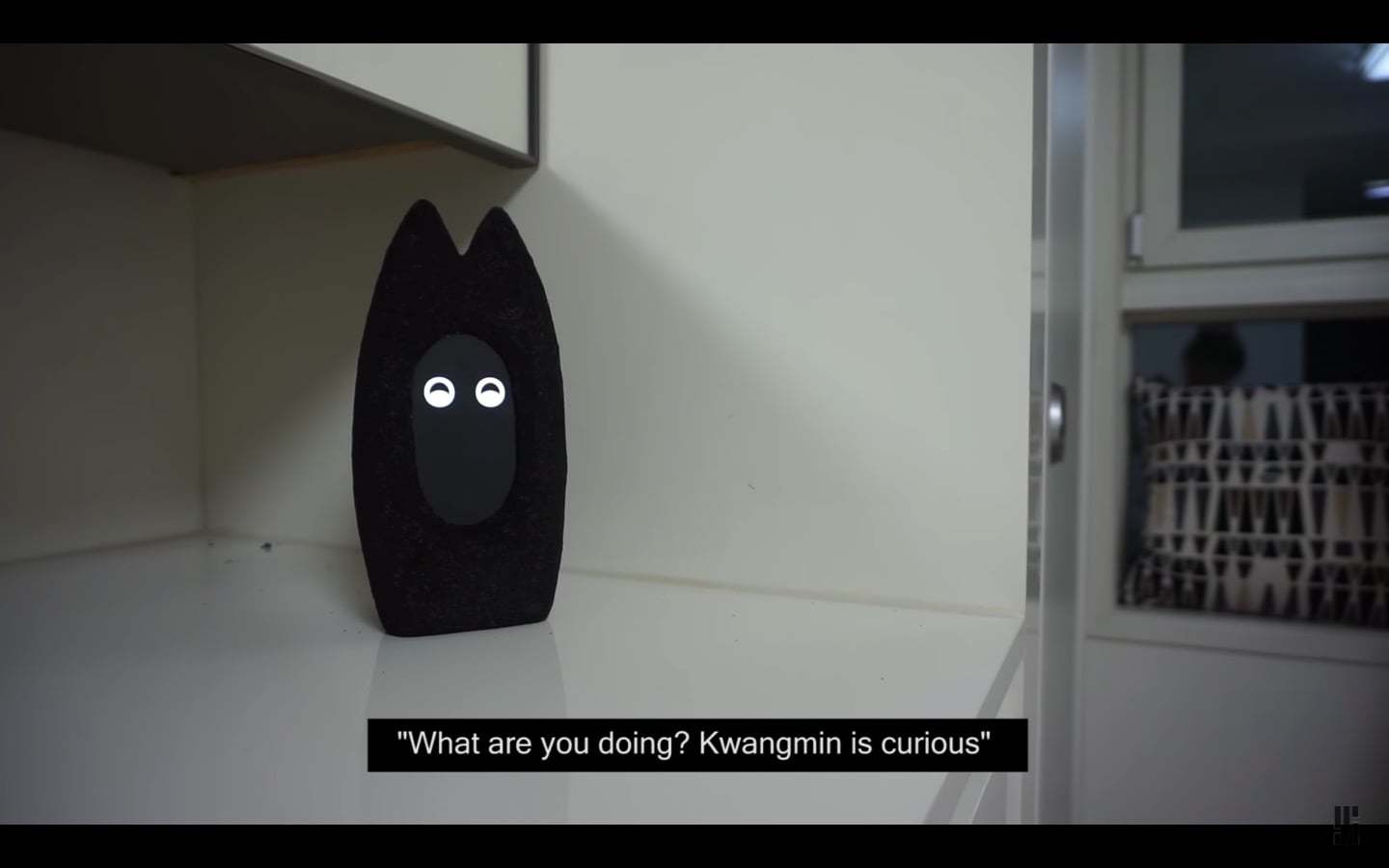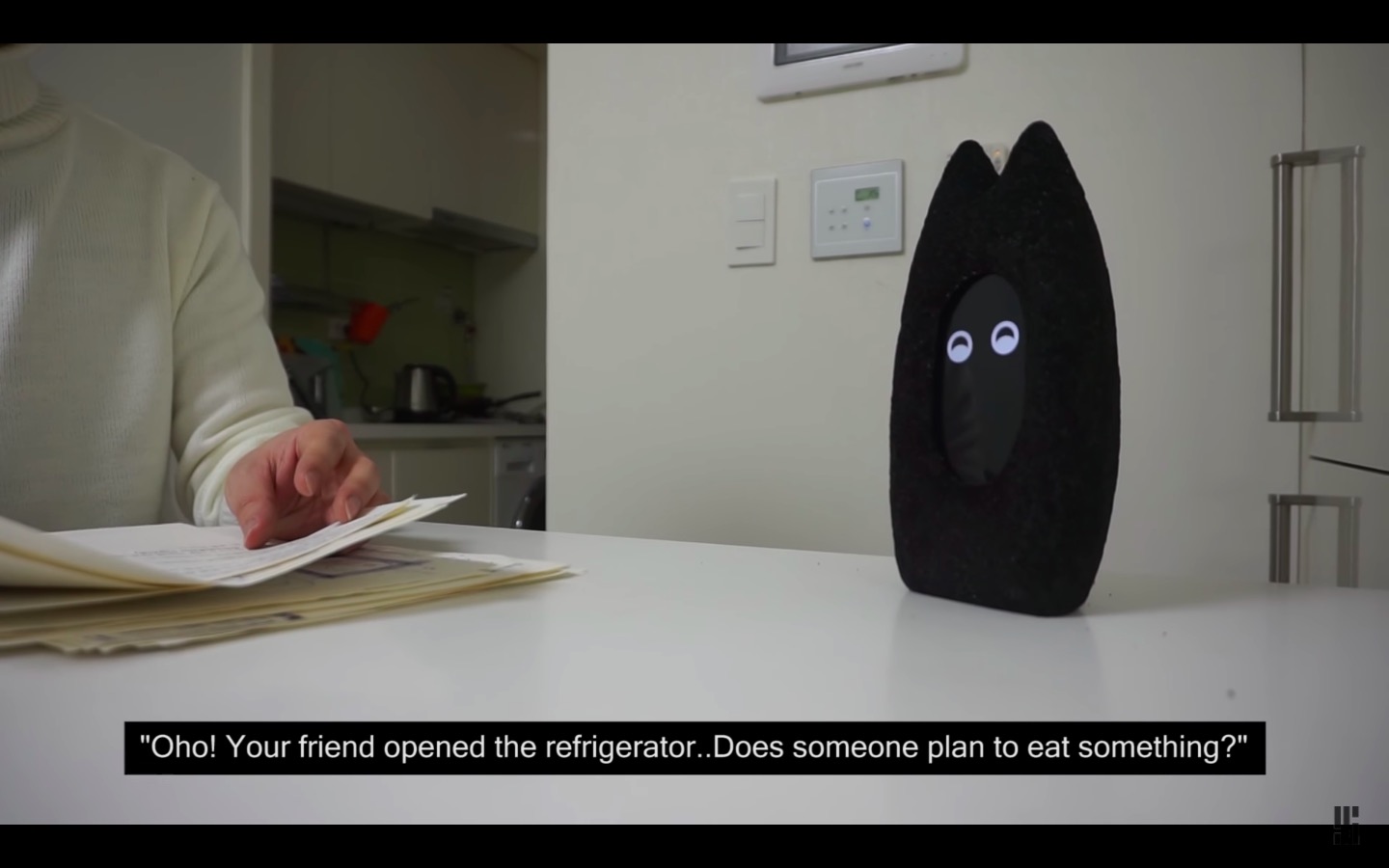The number of people living alone is on the rise in the US and other developed nations, and it’s definitely not a good thing. Loneliness and isolation are bad for your health, physically and mentally, so it’s in societies’ interests to think about how we can bring people together. Many blame technology for this fragmentation, but could it also help?
Researchers from Korea think so, and they have developed a prototype robot named Fribo that encourages young people to text and call one another. Unlike many other robots built for the home, Fribo is not intended to be social itself, but to instead foster socializing with others. Fribos are intended to be distributed to a group of friends’ houses, creating what researchers call a “virtual living space” that brings together individuals who are physically isolated.
FRIBO CREATES A “VIRTUAL LIVING SPACE” BETWEEN A GROUP OF HOUSES
Fribo does this by listening for activity in individuals’ houses and encouraging users to talk via chat apps. Microphones and sensors recognize domestic activities like when someone comes home, turns on a light, vacuums, or opens a fridge. This information is then shared anonymously with the rest of the group. “Oho!” says Fribo. “Your friend opened the front door. Did someone just come home?”
Anyone who receives this message can then respond either by texting the group chat or by knocking twice near their Fribo, which will recognize the sound and pass on a direct message: “What are you doing? Kwangmin is curious!” Users can also share approval by clapping three times when their Fribo gives them a message about an anonymous activity. So, if they’ve been notified that a friend has just arrived home late, they can send them a “welcome back” message just by clapping.
It’s an interesting and novel concept that fosters communication by keeping friends informed about other friends’ activities. This is similar to the function of social news feeds. The difference is that it doesn’t rely on individuals volunteering information themselves, and unlike platforms like Facebook, the intended audience is relatively small.

By all accounts, Fribo seems to have been a hit. Fribo was presented at the ACM/IEEE International Conference on Human-Robot Interaction last month, an in a paper describing the work (titled “Fribo: A Social Networking Robot for Increasing Social Connectedness through Sharing Daily Home Activities from Living Noise Data”), scientists from Korea’s Yonsei and KAIST universities interviewed four groups of young people who tested the robot over a month.
The robot itself also received positive comments. (In this writer’s opinion, the design seems to have been inspired by Studio Ghibli animations — no bad thing.) Participants said that over the course of their trial, they felt closer to their Fibro. One said, “As I am aware of the robot’s presence in my house, I have started talking to the robot more often. I tell the robot things that I would not normally say out loud.”
Of course, not all of the feedback was positive. Testers worried about the privacy implications of a product designed to report on their daily activity (a concern that’s common with owners of the Amazon Echo or Google Home). And the researchers noted that Fribo was designed and tested with Korean audiences in mind, and other cultures might react differently. These are relatively minor downsides, though, and given Fribo’s cheap construction (it’s powered by a Raspberry Pi and has only a simple screen and basic sensors inside), it could easily be adapted if it ever came to market.
While the constant possibility of connection provided by technology can encourage us to spend time apart, it can also be used to bring us together. As personal assistants become more common in the home, and as more people start living alone (not just young people either; it’s a big trend among the elderly too), we need to explore how we can create new types of community. Maybe robots like Frido can help.
By James Vincent
Source: https://www.theverge.com/2018/4/5/17201646/fribo-robot-social-lonely-young-people-home

